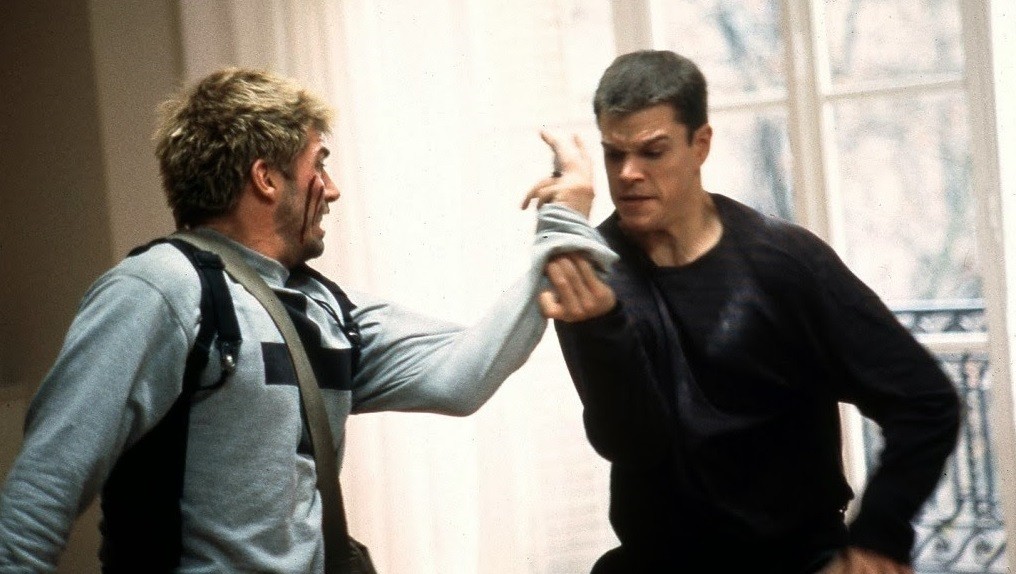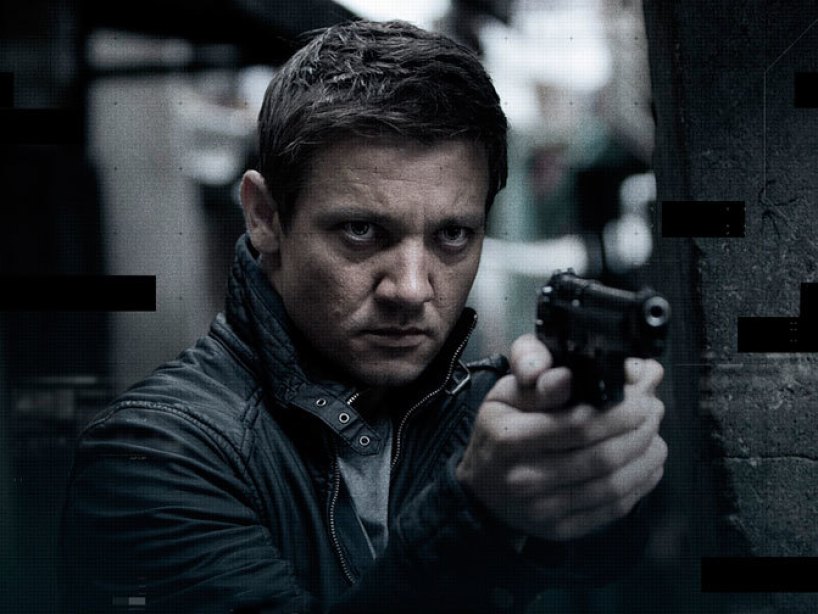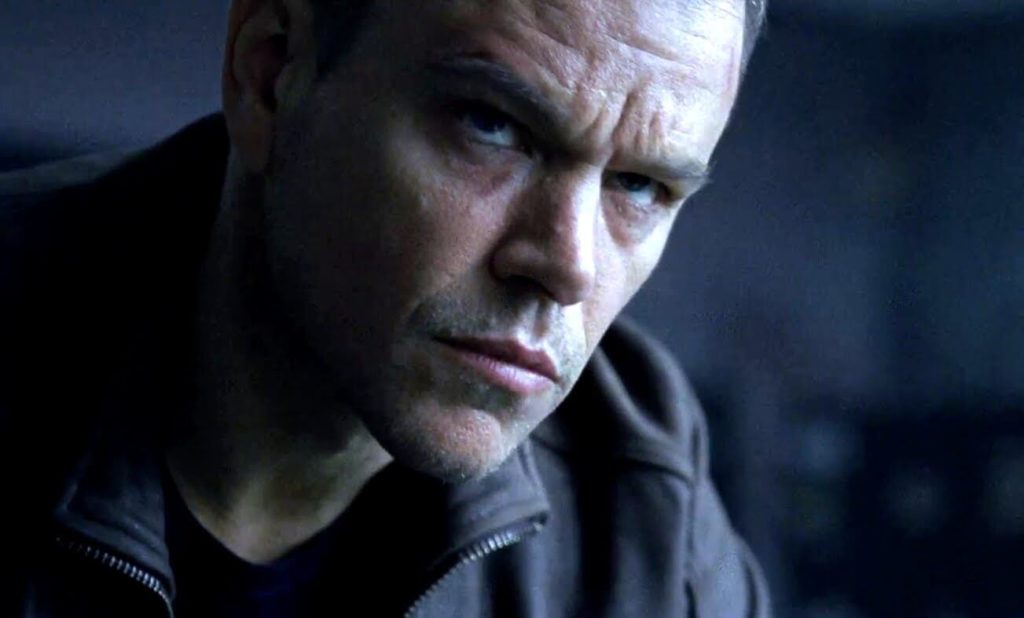When The Bourne Identity was released in theaters in 2002, it heralded a whole new era in action filmmaking, shifting the focus from big, over-the-top set pieces (perhaps most perfectly exemplified by the Matrix trilogy) to smaller, more subtle sequences, with a particular emphasis on practical stunts and handheld, docu-style cinematography (as most effectively seen in Identity’s big car chase). The move proved to be so consequential, it not only continues to influence Hollywood to this day, it also launched one of Universal Pictures’s biggest franchises (which now consists of five films and a television series) and rekindled the original book series (which skyrocketed from just three installments under original author Robert Ludlum to 12 under replacement scribe Eric Van Lustbader).
All of which explains why Universal Studios Florida is now receiving The Bourne Stuntacular, a new stunt show that also places a premium on practical effects and live actors. But that’s not all that the new production draws from its cinematic predecessors – there are several elements that will be making their way onto the stage, which means that a foray into superspy Jason Bourne’s big-screen antics is a must-do. If you don’t have the time to work through that filmography yourself, however, don’t worry – just as we did with the Fast & Furious franchise, we’ll be happy to provide the lowdown for you.
(Please note that we’ll be excluding the prequel TV show Treadstone from this summary, as its connectivity to the Bourne movies is somewhat limited. But if you’d like even more on the Bourne property’s history overall, you can always check out our overview here.)
The initial Bourne trilogy

The success of 2002’s The Bourne Identity led, in typical Hollywood fashion, to 2004’s The Bourne Supremacy and 2007’s The Bourne Ultimatum, with this first trio of films initially coming to be considered a proper trilogy by the creators. And though the movie series would, obviously, continue on past this point, and though the subsequent chapters would largely continue their predecessors’ penchant for having overlapping stories and timeframes, this trilogy can still be regarded as a separate narrative unit with its own beginning, middle, and end, telling the story of Jason Bourne’s genesis.
And “genesis” is the correct term to use here. After a highly successful run as a black-ops hitman for the Central Intelligence Agency, in which he becomes the poster child of a top-secret program called Operation Treadstone, Jason Bourne’s conscience eventually gets the better of him, and this deep-laden guilt abruptly explodes in the foreground when he’s sent to assassinate an exiled African dictator whose young family would have gotten caught in the crossfire. Bourne gets two bullets in the back for his moral qualms and is left for dead in the Mediterranean Sea.
Instead of dying, however, the CIA operative ends up with a case of amnesia, which allows him to fully develop a new personality that’s completely devoid of bureaucratic brainwashing and Treadstone behavioral modification (though the superspy training and ability to speak several languages fluently remain). It is eventually revealed throughout the course of the trilogy that Jason Bourne originally entered life as David Webb, and that in order to be inducted into the experimental Agency project, this old identity had to be broken down and replaced with the new, amoral one of Bourne. In this way, then, the events of Identity, Supremacy, and Ultimatum are the character reclaiming his self-identity – and his destiny – replete with the new desire to not kill at all (unless in self-defense, of course) and to live a life free from the corruption and control of the intelligence community.
That self-defense is necessary because various individuals at various levels of power in the CIA refuse to let the newly reborn Bourne simply walk off into the sunset with his newfound sense of happiness – due partially to intra-bureaucratic politics and partially to various deputy directors wishing to keep their dirty laundry private, a long parade of spies and assassins are sent after Jason to eliminate the threat that he could potentially represent. Not only is our protagonist successful in fending off each new foe, he also manages, in the process, to help reveal and otherwise collapse Treadstone and its spinoff, Operation Blackbriar (a project which is so successful, it quickly blossoms into a catch-all umbrella program for all of the Agency’s various black operations, including – audiences eventually learn – a direct successor to the Treadstone wetwork initiative).
The attempted Bourne spinoff

Once The Bourne Ultimatum released to strong box office, it didn’t take Universal Pictures long to order up yet another installment – and it wasn’t at all deterred when it became clear that neither Matt Damon, the franchise’s star, nor Paul Greengrass, the main director, was willing to return. The central writer behind the initial trilogy was brought back and promoted to director himself, and he was tasked with fashioning a brand-new character to continue the life-or-death adventures in Jason Bourne’s shady world.
That directive resulted in the release of 2012’s The Bourne Legacy and in the creation of Aaron Cross, an asset in a similar operation to the now-defunct Treadstone: called Outcome, it upped its predecessor’s mandate by including viral genetic manipulation of its agents, increasing both their physical and mental capabilities. (Outcome also differed from Treadstone in its governmental place of origin [the Department of Defense as opposed to the Central Intelligence Agency] and in its focus [spycraft instead of assassination].) When Jason Bourne exposes and attempts to shut down Operation Blackbriar in The Bourne Ultimatum, which occurs simultaneously to Legacy, Outcome’s supervisors pull the plug on the program, killing all of the operatives and researchers involved – except for the errant Aaron Cross, that is, whose sole goal in life is now simply to get out of the black-ops world for good.
With its integration of the first three films’ narrative and its expansion upon their core mythology, the fourth release was an interesting experiment in Bourne storytelling, but it wasn’t sufficient enough to justify the existence of an entire spinoff series. Neither Cross nor his own particular top-secret initiative would ever see the light of day again.
The final(?) Bourne

Universal Pictures’s willingness to move on without either Matt Damon or Paul Greengrass spurred both filmmakers to reconsider their recalcitrance, but it would take them another several years to get their own version of a follow-up to the initial trilogy together – it wouldn’t be until 2016 that their own continuation, called simply Jason Bourne, would hit theaters.
Although picking up Bourne’s story 12 years later, showing what he chooses to do with his painfully acquired new life, this latest movie – unfortunately for all involved – reads pretty much like a simple retread of all the previous outings as opposed to exploring fresh ground; Jason inadvertently gets sucked into yet another tussle with the Central Intelligence Agency, stumbles upon a freshly (and conveniently) unburied memory that ties into his past, sees friends (and family members, in flashback form) get killed in the process, and launches into another one-man crusade to topple the latest CIA director. At the end of the film, Bourne is in exactly the same place as he was at its start, on the run and with no real desire left him except for simply existing day to day and country to country.
Presumably, the goal here was to leave the door open for further cinematic entries, but it only ends up feeling anticlimactic.
What’s likely to appear in The Bourne Stuntacular?
It is unknown where, exactly, in the Bourne timeline The Bourne Stuntacular will take place – it could be sometime between 2002 and 2004, which is the timeframe of the original trilogy, or between ’04 and ’16, the gap between the early movies and the latest – but it will more than likely make little difference, given Jason Bourne’s similar circumstances and array of adversaries. All audiences will absolutely have to know heading in, then, is that Bourne is an ex-spy, trained to a near-superhuman degree, who is now on the lam and attempting to forge (in theory) a new life for himself while fending off a near-constant stream of “sinister characters.”
It might be more beneficial instead to focus on those other, non-backstory components that will more than likely pop up in the stunt show: the types of action scenarios that Bourne finds himself forced into time and again (martial arts face-offs [usually to the death], car chases on crowded foreign streets, and shootouts across snowy fields), the huge degree of exotic locations that he endlessly absconds to (indeed, Universal has already promised that three different continents will be visited in Stuntacular), and, finally, a smattering of recurring or supporting characters, including those employees at the CIA – both current and ex – who find themselves sympathetic to Jason’s pacifistic cause and attempt to help him to one degree or another (which includes one of several deputy directors, Pam Landy, who tries to use her stature against her counterparts who are hip-deep in the black-ops game).
Now that the stage has been set, it’s time to cue the customary end-credits Moby song and prepare to engage in spycraft and wetworks with the greatest operative that got away.
–
Have any thoughts on the Bourne films or predictions for what, exactly, will be included from them in The Bourne Stuntacular? Share ’em with 90,000+ other Universal fans over in our OI Community Facebook group.
And don’t forget to follow Orlando Informer on Facebook, Twitter, and Instagram for the latest news and tips at Universal Orlando, Walt Disney World, and other Orlando experiences.

